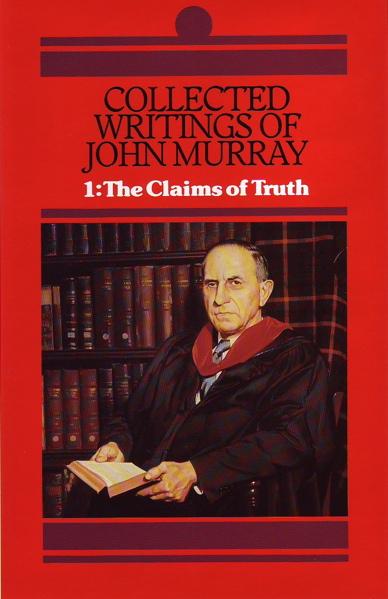A Brief Book Summary from Books At a Glance
by Steve West
About the Author
John Murray was a distinguished theologian, preacher, and author. He served as Professor of Systematic Theology at Westminster Theological Seminary from 1937-1966.
Table of Contents
Part One: The Holy Scriptures
Part Two: Jesus Christ
Part Three: Westminster Theological Seminary and Its Testimony
Part Four: The Gospel and Its Proclamation
Part Five: The Christian Life
Part Six: The Moral Law and the Fourth Commandment
Part Seven: The Church
Part Eight: Historical
Part Nine: Issues in the Contemporary World
Summary
The Holy Scriptures
There are many who accept the Scriptures as the infallible Word of God, and although many of them read the Bible regularly, the great need is for people to engage with the Bible more deeply. We need prayerful reading and deep meditation, where we look to learn the truths of Scripture so that we are fed and transformed by them. Such diligent study is required, and three reasons why this is the case will be mentioned. First, the Bible is the Word of God. Imagine how lost we would be without it. God has revealed to us what we need to know regarding himself and his will, as well as what we need to know about ourselves and our lives in this world and in eternity. The Bible is a treasure, and if we appreciate what it is we will study it with determination. Second, although the gospel message is obvious in Scripture, going on to maturity requires more sustained reading and attention. Our theology must be in accord with the organic nature of Scripture; everything in Scripture is connected. Individual verses are to be read in larger contexts, and the parts and the whole mutually interpret one another. Third, our own thoughts and practices need to be informed by painstaking study of Scripture. No matter how much we have learned, God’s Word is our only sufficient source for life. Growing stagnant in our knowledge and thinking is a great danger, so we must continually go to the Word for fresh insights. Only in subjection to Christ and his commands can we find liberty. Never approach the Word without the Spirit; he is absolutely vital, and he can supply you with all that you need.
In a world of fallibility, the claim that there is a book that is infallible is both staggering and momentous. We can defend the internal consistency of Scripture and we can overturn objections to it, but we cannot prove its infallibility. The Bible claims many things that cannot be proven by our own empirical research. Our grounds for accepting the infallibility of Scripture is the infallible testimony of Scripture itself. This seems to beg the question and be circular, but given the nature of this case it could not be otherwise. Scripture is absolutely unique, and without it we would know nothing of the gospel or Christianity. Only in Scripture do we receive a revelation of God’s will and saving grace in Christ Jesus. If we will not accept Scripture’s verdict about itself then we have no reason to accept its verdict about anything else it speaks of. Of the many relevant passages, 2 Timothy 3:16 and 2 Peter 1:21 stand out for their articulation of a doctrine of Scripture. Biblical infallibility is organically linked to the rest of the Bible’s doctrines. The meaning of the Scripture is given by the Spirit and not imposed by us. What is at stake in the doctrine of infallibility is nothing less than the entire nature and character of God’s witness. . . .
[To continue reading this summary, please see below....]The remainder of this article is premium content. Become a member to continue reading.
Already have an account? Sign In
Buy the books

COLLECTED WRITINGS OF JOHN MURRAY, VOLUME 1: THE CLAIMS OF TRUTH, by John Murray